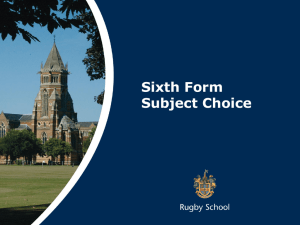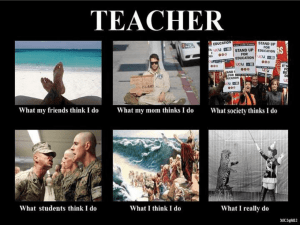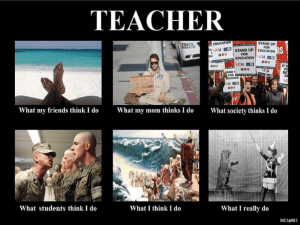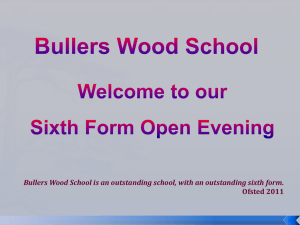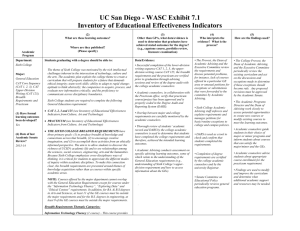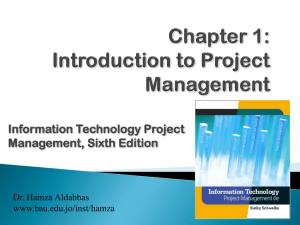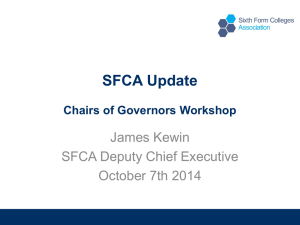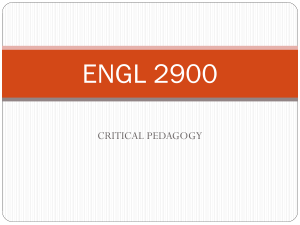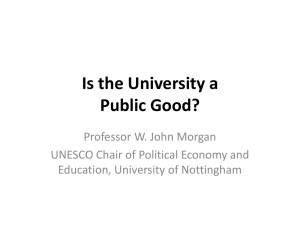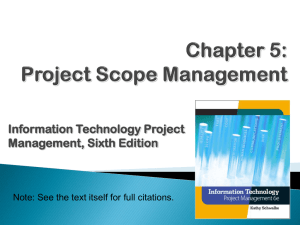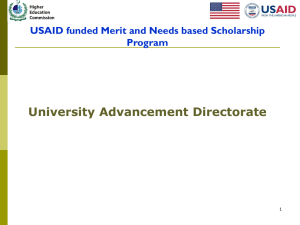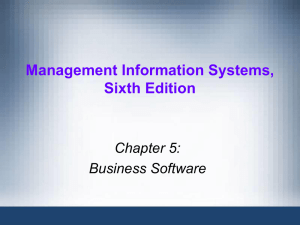File - Gary Snapper
advertisement
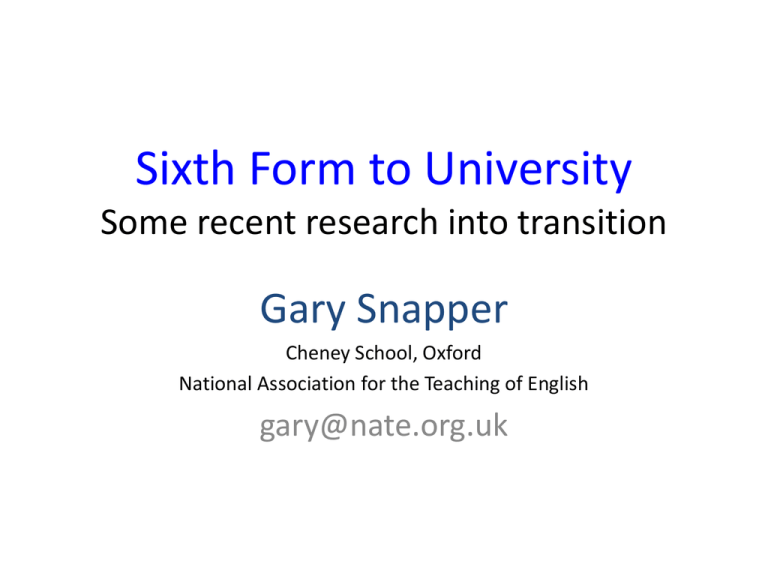
Sixth Form to University Some recent research into transition Gary Snapper Cheney School, Oxford National Association for the Teaching of English gary@nate.org.uk Reform: “A New Level” www.reform.co.uk The rise of the ersatz A-level has stymied independent study and original thought. After successfully becoming a mass market qualification in the 1980s and 1990s, A-levels underwent radical surgery in 2000 that damaged their intellectual integrity. Modularisation and mechanised marking were introduced despite the objections of universities. These changes have not widened participation – instead they have created a generation of “high maintenance students” who struggle to think for themselves. Intellectual integrity was traded off against a central drive for wider participation. This has failed. Increases in participation have flagged since the major changes to A-level in 2000, following acceleration in the 1980s and 1990s. If anything the gap between schools in the state and private sectors is widening as the best schools increasingly turn to respected, rigorous qualifications such as the International Baccalaureate and Cambridge Pre-U. Meanwhile the majority of state schools are stuck with a hollower A-level. Action must be taken to re-link A-levels with their strong academic heritage. Universities should take responsibility for the quality assurance of A-levels. New ersatz qualifications such as “Use of Maths” and “Critical Thinking” A-levels should be halted. Starting points Comparisons between demands / qualities of A Level and IB A Level : pre-2000 and 2008 changes • Narrowness of programme – 3 subjects standard, no framework, no broadening, no coherence • Narrowness within subjects IB: • Breadth / coherence of programme leading to depth • Breadth within subjects (e.g. internationalism, variety of assessment modes) English Literature A Level – • Model of subject virtually unchanged since 1960s despite huge changes in HE English • Atomistic approach to syllabus: little coherence or emphasis on ‘the big picture’ I.B. – • Syllabus offers variety of models and methods • Strong emphasis on disciplinary frameworks – e.g. genres, periods, cultures, comparative approaches Research into trajectory of I.B. students from Impington Marked for Life: progression from the IB The International Baccalaureate Diploma Programme: An Introduction for Teachers and Managers, ed. Tim Pound, Routledge 2006 • Small scale study of nine ex-students who took the I.B from 1993 – 1999 • How might the IBDP have helped prepare them for university, employment, citizenship? I would not hesitate to recommend the IB, despite the heavy workload… The time I spent doing the course helped shape me into who I am as an adult. University was almost a let down by comparison. (Student B) I have never regretted taking the IB – on the contrary, I have always felt privileged to have had the opportunity to take it… When I first went to university I found it disappointing after my time [in the sixth form]. Classes were not as stimulating and certainly not as focussed, other students were not as comfortable in taking part in discussions, and many showed little interest in any subject other than their own as it was narrowly defined by the syllabus. (Student D) I find it almost impossible to be objective about the IB as it was a wholly positive experience for me, and I still firmly believe that in terms of preparation for life after the sixth form, whether in academia or otherwise, the IB has far more to offer than A Level. The roundedness of the IB program gives, in my opinion, a far better grounding than separate A level courses, and I certainly felt when I got to university that I was significantly advantaged by my sixth form experience. (Student I ) 2 students who started A Level at a sixth form college but transferred to the IB at IVC: • I disliked the learning system at [the sixth form college], which involved being fed a lot of information in preparation for exams, as it wasn’t interactive or in any way to do with the process of learning. (Student E) • I didn’t enjoy the way the subjects were taught so independently, that there was no real attempt at integration of the courses, and that there didn’t seem to be any desire to provide an holistic learning experience over the two-year period. (Student I) Students’ university experiences: • Doing the IB was an extremely valuable exercise in time management; studying many different subjects to a high level taught me to prioritise and to use the little time I had to do the work effectively. I learnt to research topics quickly and efficiently – a very helpful technique to have learnt before getting to university. (Student B) • I have always believed that the IB was excellent preparation for university. I had little difficulty organising my university study since I actually found it to require less organisational aptitude than the IB. (Student H) • At university, I never missed a deadline, and, whilst others were struggling with the workload, I did not really notice it. The extended essay played a great part in this as I was already used to writing long essays. I don’t think I would have been as well prepared in this respect if I had opted for A levels. (Student C) • It is surprising how often subjects we touched on in TOK have re-emerged in seemingly unrelated subjects later on in my education. (Student G) • The way that the IB opens your mind to thinking about every aspect of a subject was not something that those who had done A levels in my class were used to applying to music. (Student B) Some elements of IB identified as beneficial to university transition • Encourages independent / critical thought • Encourages cross-disciplinary thought (TOK) and political / philosophical angles (TOK, World Lit, Subjects) • Emphasises variety of modes of communication and assessment • Provides opportunity for extended essay / research • Emphasises international aspects / applications • Encourages good learning habits / organisation Research into transition from A Level to University (English) • PhD research, Institute of Education, University of London • Case study of one class of 1st year students at a top-end ‘new’ university (average grade profile – B at A Level) with a highperforming English dept • Study followed students and lecturers for one year • Data from weekly observations of core lectures and seminars, + interviews with students and lecturers. • Emphasis on experience both in VI form and in HE • Very little existing research of this kind (in HE or VI form) Research focus How do students deal with the conceptual demand of the HE course? - e.g. • understanding of disciplinary frameworks and boundaries • extent and nature of reading and thinking How do lecturers accommodate for students’ learning needs in these respects? How well does A Level prepare for this? Background / Literature Review 1. Consistent criticisms of A Level (Literature) from both secondary and higher sectors for: • • • • narrowness and conservatism old-fashioned modes and methods lack of theoretical framework lack of engagement with cultural analysis and applications 2. Consistent lack of communication / co-operation between university and secondary sectors 3. Growing concern in HE with: • how to provide ‘epistemological access’ in context of cultural diversity, widening participation, diversity of values ‘Understanding University Learning’ 4. Post-16 policy developments: • RAE in universities • development of HE Learning Academy / Subject Centres with remit for curriculum/pedagogy • Curriculum 2000 (failed) • Tomlinson Report (rejected) • growth in interest in IB (Welsh Bacc, English Bacc, AQA Bacc, etc.) • A Level 2008 developments + Diploma Some broader issues • To what extent can / should Sixth Form align with / prepare for university study? • IB seems to offer certain elements that prepare well for university, and seems to embody some of the breadth and freedom of university study? Could A Level do this? • To what extent does university teaching and learning provide a model for sixth form? • Transition matters? Desirability of strength of academic cycle (teacher - student - teacher) Some research issues • Generalisation from one case study must be made with care • Ideally, we need more research BUT • The case study takes one random, typical, average group and identifies issues likely to be of common concern Findings: Headlines 1 – A Level • A Level Literature prepared students poorly for demands of the HE English course: • No introduction to the likely content of a university course • No introduction to HE research skills / teaching and learning conditions (lectures, libraries, etc.) • Virtually no secondary/critical reading • Little chance to make cross – disciplinary connections • No General Studies / TOK type input • No extended writing or research Findings: Headlines 2 - HE • HE modules struggled to start from where students are or to engage with students’ motivations or rationales for study • Lecturers are often puzzled by students’ disciplinary uncertainty or varied motivations, appearing to expect fully-formed intellectual commitment • Meta-cognitive support for students - access to theoretical discourses and self-positioning - was weak + restricted teaching time • Many concepts and texts covered at HE pitched inappropriately but would be accessible given appropriate presentation and engagement Learning issues • Lecturers concerned by students’ ‘instrumental’ and assessment-driven approaches to learning - : often attributed to ‘spoon-feeding’ and assessment overload at A Level • But at HE, most students silent in seminars; many become alienated as course progresses and they fail to grasp content / reading load. This in turn leads to instrumental approaches to learning Teaching issues • A Level Lit provides happy environment for most students (though some express boredom with syllabus); pedagogy starts from where students are but does not always foster independent study skills or access to broader issues and frameworks • HE pedagogy may attempt student-centred strategies but can suffer from lack of pedagogical expertise and lack of clarity about what students already know and where they are in terms of learning and motivation Some difficulties for students • Reading widely and quickly, especially in pre-twentieth century literature • Negotiating the secondary literature of literary scholarship • Understanding / assimilating purposes, methods, parameters and frameworks of literary study (note-taking, research skills, etc) • Engaging with broad socio-cultural-linguistic aspects of literature, especially those beyond the analysis of the fictional world of the single text • Poetry – technical and aesthetic aspects; understanding the genre, its forms and conditions • Seeing literary texts as part of a real world beyond the classroom of the production, consumption, reception and interpretation of texts in a social context rather than as objects for analysis in a classroom • Recognising and addressing cultural/political references, allusions • Skills of close reading The Future? • Reform’s recommendation: universities to take charge of A Levels…? Key issues: • More breadth needed at A Level, and direct preparation for HE, but there is much to be learnt by HE from VI Form • Breadth can provide access to depth / independence • More appropriate pedagogy needed at HE, but there is much to be learnt by sixth forms from HE • HE needs to understand students’ learning and motivations better • Greater communication between schools and universities, accommodation of each other’s needs • Power of sixth form pedagogy + HE subject expertise While so often the schools and the universities seem quite separate, if teachers and researchers in the universities begin to engage in more active dialogue with the developers of reading and writing programmes and the teachers who have to teach students – young and older – ‘how’ to read and write, it might be possible to begin to change the dominant significations of reading in the schools, so that more students could begin to learn to read the world simultaneously with learning to read the word. Kathleen Mcormick, The Culture of Reading and the Teaching of English
